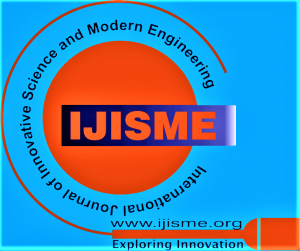Water Purification by Activation Plasma Technology
Chandan Kumar1, Ankit Raj Sinha2, Sanjay Prakash3, Khushwant Singh4, Saurabh Kumar5
1Chandan Kumar*, Assistant Professor, Department of civil engineering, NSIT Bihta, Patna India.
2Ankit Raj Sinha, Assistant Professor, Department of civil engineering, NSIT Bihta, Patna India.
3Sanjay Prakash, Assistant Professor, Department of civil engineering, NSIT Bihta, Patna India.
4Khushwant Singh, Assistant Professor, Department of civil engineering, NSIT Bihta, Patna India.
5Saurabh Kumar, Assistant Professor, Department of civil engineering, NSIT Bihta, Patna India.
Manuscript received on July 05, 2020. | Revised Manuscript received on July 11, 2020. | Manuscript published on July 15, 2020. | PP: 15-23 | Volume-6, Issue-8, July 2020. | Retrieval Number: H1251076820/2020©BEIESP | DOI: 10.35940/ijisme.H1251.076820
Open Access | Ethics and Policies | Cite
© The Authors. Published By: Blue Eyes Intelligence Engineering and Sciences Publication (BEIESP). This is an open access article under the CC BY-NC-ND license (http://creativecommons.org/licenses/by-nc-nd/4.0/)
Abstract: In modern water treatment technologies Water needs to be processed to a level that can be reused in a meaningful way. Plasma production or plasma injection in liquid water provides an opportunity to inject advanced Oxidation processes in water for purification or chemical processing. Such technology can revolutionize Drinking water treatment, as well as current practices of chemical processing by removing physical catalysts. An overview of current water treatment is presented here where Technology, its limitations and the future, may include Plasma-based advanced oxidation method. In plasma Introduction to liquid water produces and attacks a host of reactive species finally mineralize the contaminants in the solution. This interaction takes place at the boundary layer or at the interaction zone is concentrated at the plasma – liquid water interface. There are limitations of traditional plasma injection procedures which include limited throughput capacity, electrode shear and reduced Process Volume. Here the technical limitations of plasma based water reactor will also be discussed.
Keywords: New Technology, Waste Water, Organic Compound, Water Pollution, Advance oxidation process, Plasma method, Plasma based Water Reactor.
